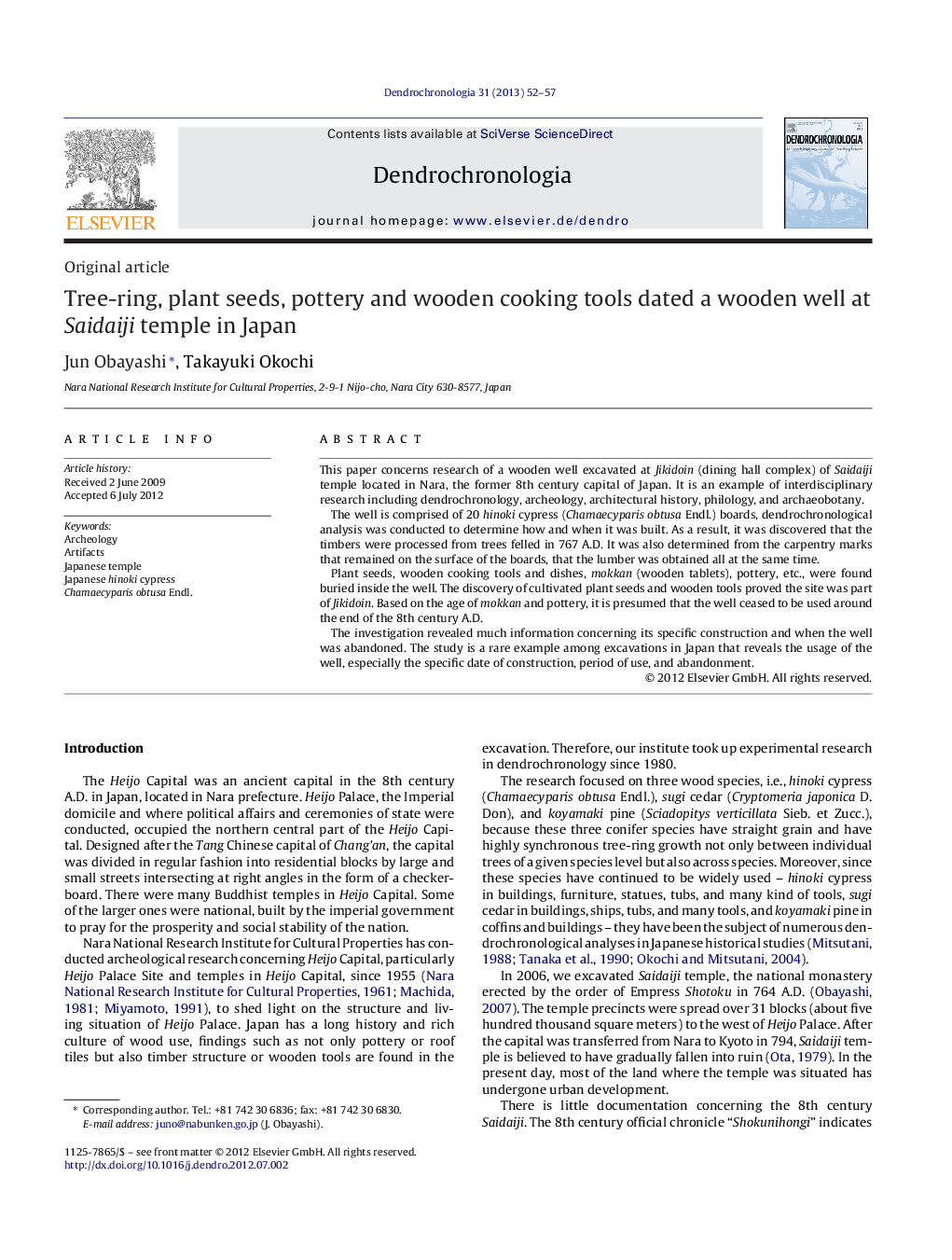| Article ID | Journal | Published Year | Pages | File Type |
|---|---|---|---|---|
| 85631 | Dendrochronologia | 2013 | 6 Pages |
This paper concerns research of a wooden well excavated at Jikidoin (dining hall complex) of Saidaiji temple located in Nara, the former 8th century capital of Japan. It is an example of interdisciplinary research including dendrochronology, archeology, architectural history, philology, and archaeobotany.The well is comprised of 20 hinoki cypress (Chamaecyparis obtusa Endl.) boards, dendrochronological analysis was conducted to determine how and when it was built. As a result, it was discovered that the timbers were processed from trees felled in 767 A.D. It was also determined from the carpentry marks that remained on the surface of the boards, that the lumber was obtained all at the same time.Plant seeds, wooden cooking tools and dishes, mokkan (wooden tablets), pottery, etc., were found buried inside the well. The discovery of cultivated plant seeds and wooden tools proved the site was part of Jikidoin. Based on the age of mokkan and pottery, it is presumed that the well ceased to be used around the end of the 8th century A.D.The investigation revealed much information concerning its specific construction and when the well was abandoned. The study is a rare example among excavations in Japan that reveals the usage of the well, especially the specific date of construction, period of use, and abandonment.
